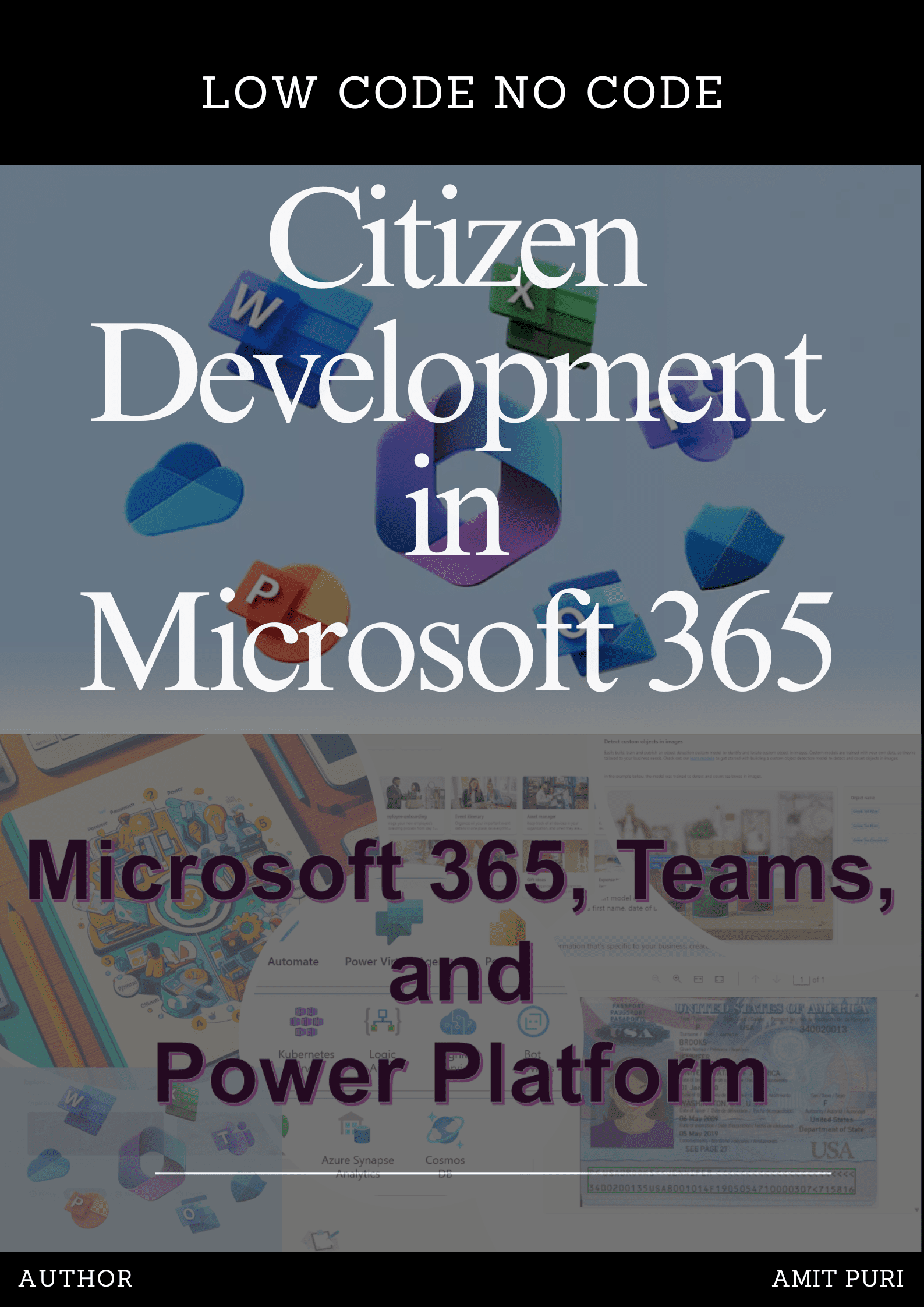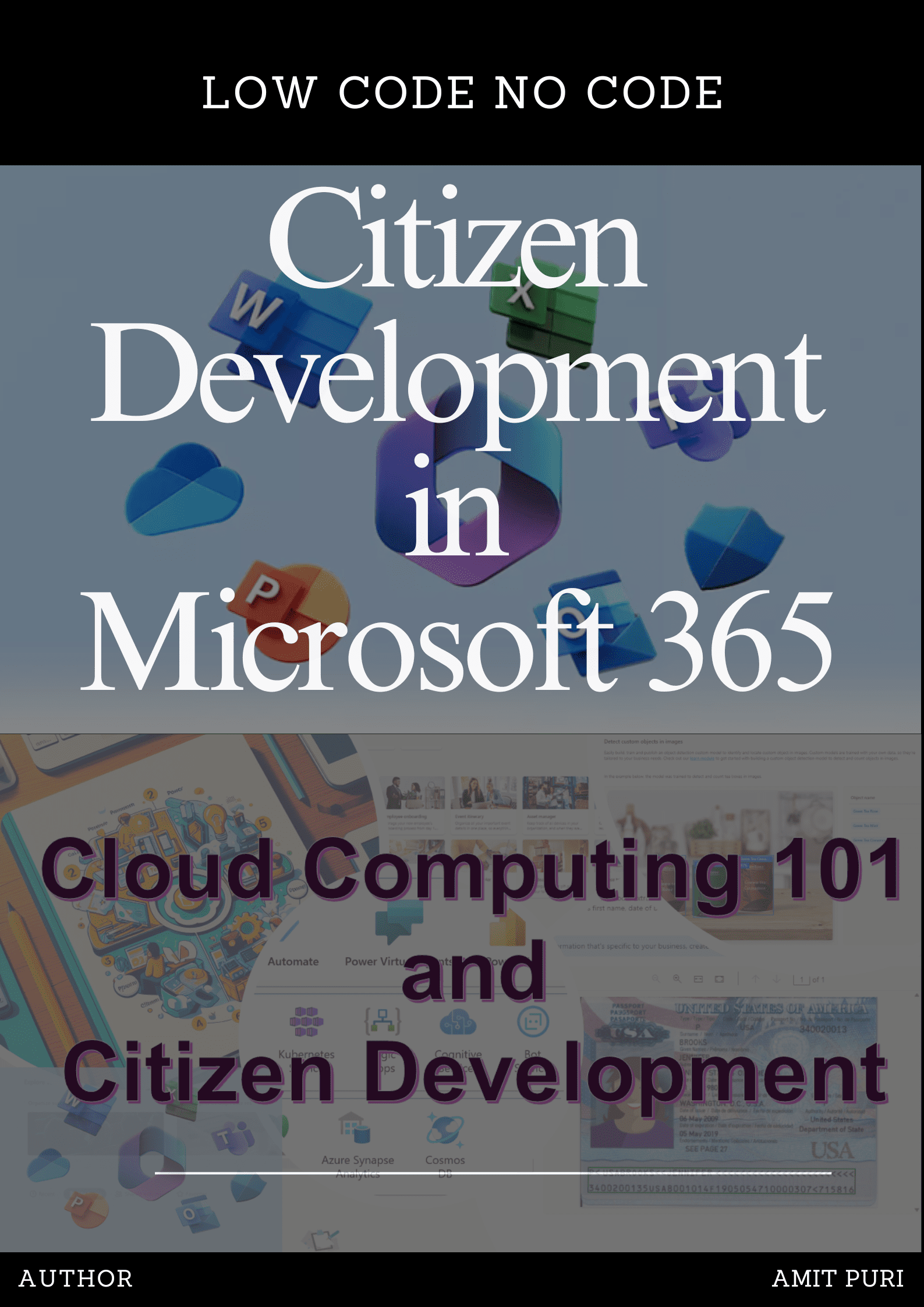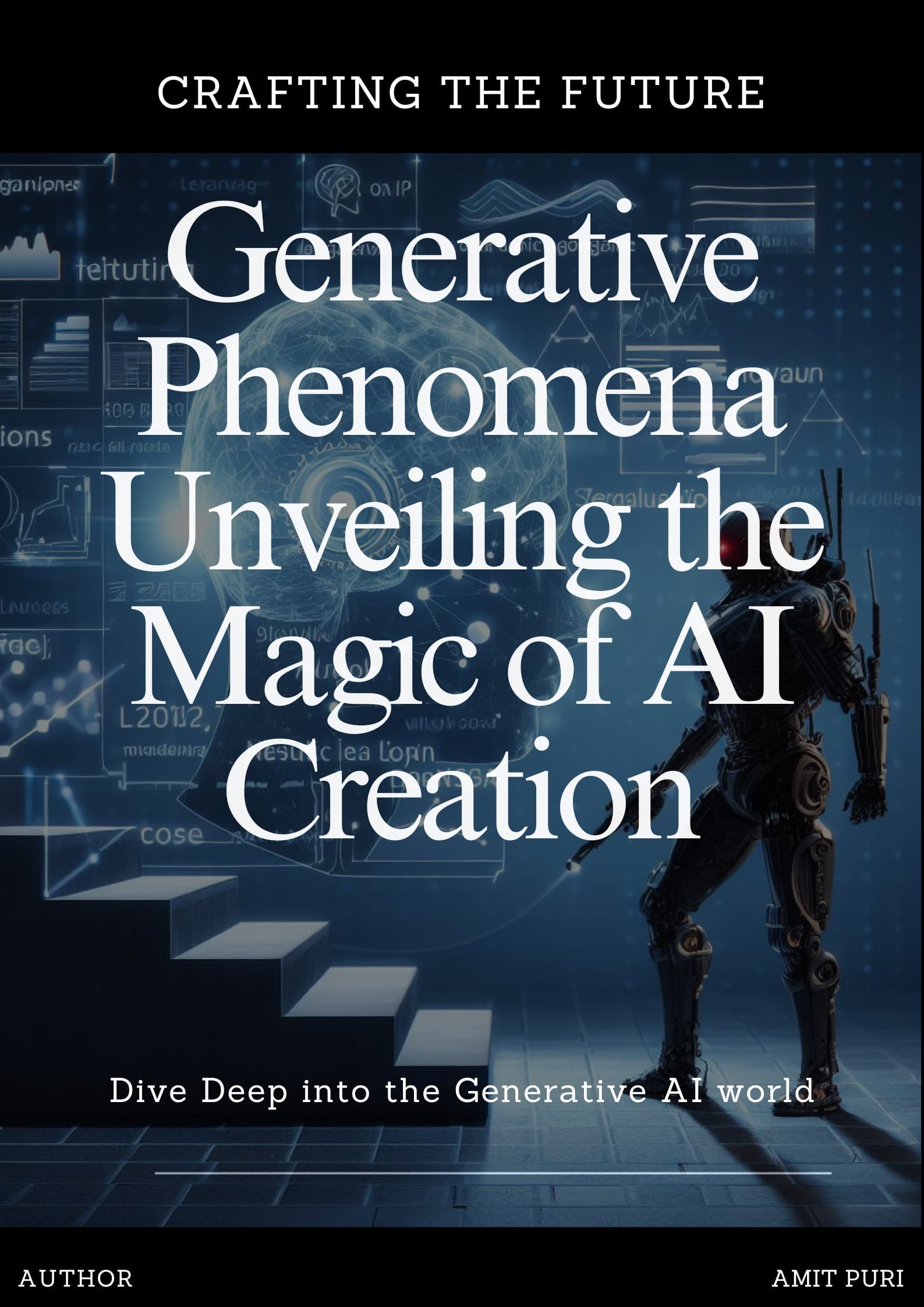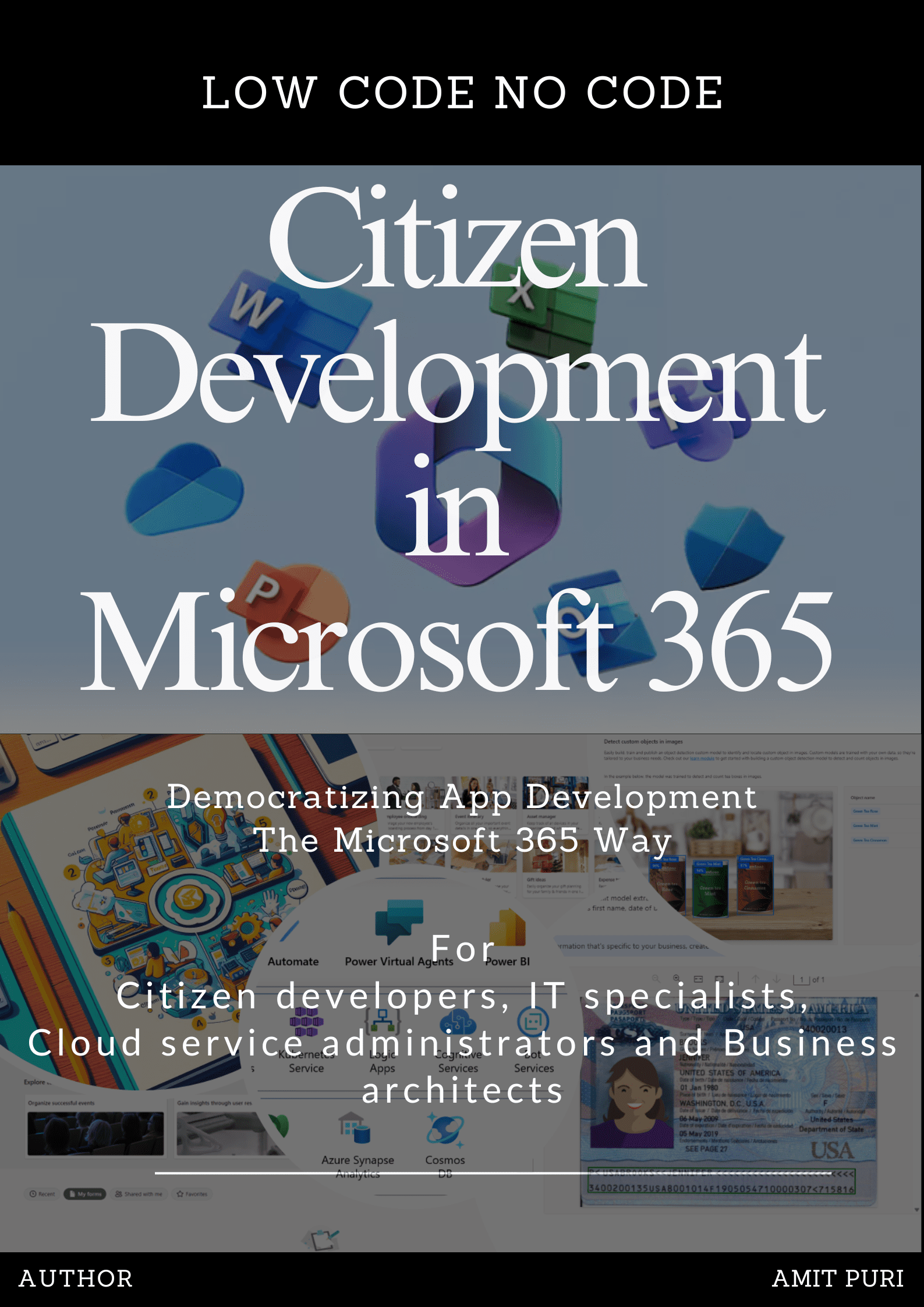4 min to read
Introductory chapter 01 : Unleashing the Potential of Citizen Development in Microsoft 365
Democratizing App Development: The Microsoft 365 Way

| Last Chapter | 01/11 | Next Chapter |
|---|
In the first chapter of “Citizen Development in Microsoft 365,” the author delves into the intricacies of Microsoft 365, Microsoft Teams, and the Microsoft Power Platform. The chapter emphasizes the significance of Rapid Application Development (RAD) and contrasts it with custom-built software solutions. It highlights the potential of Low-code and No-code (LCNC) development approaches in creating short-term solutions that can evolve into long-term ones. The chapter aims to familiarize readers with various concepts around RAD, Citizen development, and how to harness the Microsoft Cloud for crafting compelling business scenarios. It also provides an overview of Microsoft 365, Microsoft Teams, and the Power Platform, guiding readers on getting started with a Microsoft work account, Multi-Factor Authentication MFA, and various apps. The chapter underscores the importance of digital transformation and the pivotal role Microsoft 365 plays in such transformational efforts.
The digital age has ushered in a new era of software development, where the emphasis is not just on coding but also on accessibility and democratization. Central to this shift is the rise of Low-code and No-code (LCNC) platforms, as highlighted in the chapter. These innovative platforms are transforming the way applications are built, making it possible for individuals without deep coding expertise to design and deploy powerful solutions. By simplifying the development process, LCNC platforms are breaking down barriers, allowing a broader range of individuals to participate in the creation of digital tools. This not only accelerates the pace of innovation but also fosters a more inclusive environment where IT professionals collaborate seamlessly with business users. The result is a more agile, responsive, and diverse software ecosystem that caters to the evolving needs of modern businesses.
Microsoft’s vision for the future is deeply rooted in the belief that technology should be an enabler, accessible and beneficial to everyone, regardless of their technical expertise. This ethos is clearly reflected in their strategic investments in platforms such as Microsoft 365, Microsoft Teams, and the Power Platform. These tools are not just standalone products; they represent a cohesive ecosystem that integrates seamlessly, offering users a range of capabilities from collaboration to automation. By democratizing AI and other advanced technologies, Microsoft is ensuring that businesses, educators, and individuals can harness the power of AI to solve real-world challenges, enhance productivity, and drive innovation. This approach not only positions Microsoft as a leader in the tech industry but also underscores its commitment to fostering a culture where technology amplifies human potential, creativity, and collaboration.
The modern workplace is undergoing a significant transformation, driven by technological advancements and shifts in societal expectations. The chapter highlights this evolution, emphasizing the increasing adoption of hybrid work models where employees split their time between traditional office settings and remote locations. This new paradigm presents both opportunities and challenges, necessitating tools and solutions that support flexibility while maintaining productivity and collaboration. Microsoft, with its forward-thinking approach, has introduced solutions like Microsoft Viva, specifically tailored to address the nuances of the hybrid workplace. Viva integrates various modules, from employee well-being to knowledge sharing, ensuring that teams remain connected, engaged, and informed, irrespective of where they work. By providing such holistic solutions, Microsoft is not only responding to the immediate needs of businesses but also shaping the future of work, championing an environment that prioritizes both efficiency and employee well-being.
| Now, available on | |||
|---|---|---|---|

|
|||
| India | UK | Canada | Australia |
In conclusion, the chapter offers a exploration of the evolving landscape of modern workplaces, emphasizing the pivotal role of technology in shaping this transformation. As hybrid work models emerge as the new standard, the need for adaptive and integrative solutions becomes paramount. Microsoft, recognizing these shifts, has proactively developed tools like Microsoft Viva to address the multifaceted challenges and opportunities presented by the hybrid work paradigm. By democratizing AI and fostering a culture of innovation, Microsoft is not only meeting the immediate demands of businesses but also laying the foundation for a future where technology and human potential harmoniously coalesce. This chapter serves as a testament to the importance of adaptability, foresight, and innovation in navigating the ever-changing dynamics of the workplace.
Read about the next chapter 02 - Unveiling the Power of Cloud Computing 101 and Citizen Development
Go back to chapters listing on Book - Citizen Development in Microsoft 365
| Last Chapter | 01/11 | Next Chapter |
|---|
Review this book
Goodreads link https://go.amitpuri.com/gr-cd-m365
If you are interested in Citizen Development, refer to this book outline here on A Guide to Citizen Development in Microsoft 365 with Power Platform
| Now, available on | ||||
|---|---|---|---|---|
|
|
||||

|
||||
|
|
|
|
|
|
If you wish to delve into GenAI, read Enter the world of Generative AI
Also, you can look at this blog post series from various sources.
Stay tuned! on Generative AI Blog Series



Comments